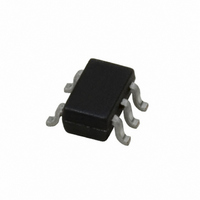LMV821M7/NOPB National Semiconductor, LMV821M7/NOPB Datasheet - Page 15

LMV821M7/NOPB
Manufacturer Part Number
LMV821M7/NOPB
Description
IC OP AMP R-R LOW V LP SC-70-5
Manufacturer
National Semiconductor
Datasheet
1.LMV821M5NOPB.pdf
(24 pages)
Specifications of LMV821M7/NOPB
Amplifier Type
General Purpose
Number Of Circuits
1
Output Type
Rail-to-Rail
Slew Rate
2 V/µs
Gain Bandwidth Product
5.6MHz
Current - Input Bias
100nA
Voltage - Input Offset
3500µV
Current - Supply
300µA
Current - Output / Channel
45mA
Voltage - Supply, Single/dual (±)
2.5 V ~ 5.5 V, ±1.25 V ~ 2.75 V
Operating Temperature
-40°C ~ 85°C
Mounting Type
Surface Mount
Package / Case
SC-70-5, SC-88A, SOT-323-5, SOT-353, 5-TSSOP
Lead Free Status / RoHS Status
Lead free / RoHS Compliant
-3db Bandwidth
-
Other names
LMV821M7
LMV821M7TR
LMV821M7TR
Available stocks
Company
Part Number
Manufacturer
Quantity
Price
Company:
Part Number:
LMV821M7/NOPB
Manufacturer:
NS
Quantity:
316 000
Company:
Part Number:
LMV821M7/NOPB
Manufacturer:
NSC
Quantity:
2 848
Application Note
To simplify the design process, certain components are set
equal to each other. Refer to Figure 10 and Figure 11. These
equal component values help to simplify the design equa-
tions as follows:
To illustrate the design process/implementation, a 3 kHz,
Butterworth response, low-pass filter DAAF (Figure 10) is
designed as follows:
1. Choose C
2. Choose R
3. Calculate R
4. Calculate R
Butterworth (Maximally Flat) response is 0.707 (45 degrees
into the s-plane). R
1
4
= R
a
= C
3
and R
for the desired Q. The desired Q for a
3
5
3
= C = 1 nF
= 1 kΩ
calculates as follows:
2
for the desired Fc as follows:
(Continued)
15
Notice that R
The circuit was implemented and its cutoff frequency mea-
sured. The cutoff frequency measured at 2.92 kHz.
The circuit also showed good repeatability. Ten different
LMV822 samples were placed in the circuit. The correspond-
ing change in the cutoff frequency was less than a percent.
TRI-LEVEL VOLTAGE DETECTOR
The tri-level voltage detector of Figure 13 provides a type of
window comparator function. It detects three different input
voltage ranges: Min-range, Mid-range, and Max-range. The
output voltage (V
clamped at GND for the Mid-range. For the Max-range, V
at V
the circuit of Figure 13.
Its operation is as follows: V
the diode bridge to absorb I
tion (V
diode bridge. When this limit is reached, the clamping effect
stops and the op amp responds open loop. The design
equation directly preceding Figure 14, shows how to deter-
mine the clamping range. The equation solves for the input
voltage band on each side GND. The mid-range is twice this
voltage band.
ee
. Figure 14 shows a V
O
= 0V). Eventually, I
3
could also be calculated as 0.707 of R
O
) is at V
IN
IN
O
I
CC
to maintain a clamped condi-
vs. V
deviating from GND, causes
reaches the bias limit of the
for the Min-range. V
I
oscilloscope photo per
10012889
www.national.com
a
or R
O
O
is
is
2.












